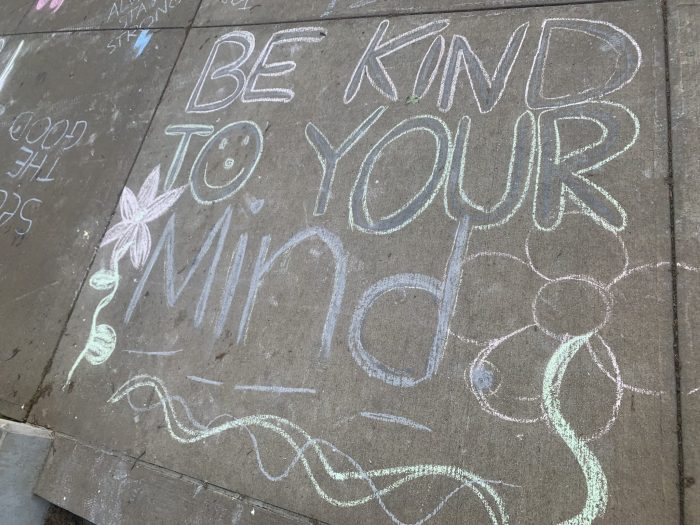Editorial: Take mental health seriously
When we feel achy, nauseous and dizzy, we know something is wrong. We might visit the doctor, take cold medicine or cancel plans in order to get some rest.We quickly equate the corporeal symptoms with a physical ailment and treat the illness appropriately. A cut requires a bandage, a broken bone needs a cast.
When we are mentally struggling, the problem is more difficult to diagnose. Our stubborn minds, too smart for their own good, may equivocate and minimize the pain, convincing ourselves that in the absence of physical symptoms, pain should not exist. We are busy–kids need rides to school, deadlines loom and work piles up. There isn’t time for a quiet moment to check in with our emotions.
It may seem inconvenient, or even embarrassing for us to admit that our mental state is suffering, but we can’t outrun, outwork or suppress something as vital as mental health. We shouldn’t accept it as a weakness or as an unavoidable dispositional quality. Help awaits to alleviate our discomfort or suffering.
Prolonged distress or anxiety has physical consequences, such as high blood pressure, weight fluctuation, heart disease and sleep issues. We shouldn’t ignore our minds.
Mental illness doesn’t discriminate by age, gender or class. Stigmas surrounding asking for help differ by demographic, with men less likely to reach for help when they are struggling. Prescribing to stereotypes and gender roles contributes to the idea that men shouldn’t ask for help, or are failing in their masculinity if they do. Less than half of men suffering from depression or anxiety actually seek help.
It may seem like we are alone–that there must be something wrong with us for feeling anxious or depressed or paranoid. This is untrue. The World Health Organization estimates that 1 in 8 adults suffer from mental disorders each year.
It is time to prioritize mental health instead of pushing it to the side. If something is off with friends or loved ones–they aren’t as enthusiastic about their hobbies, aren’t eating as much or are eating more than normal, or are isolating themselves– make sure they know you are there to support them and get them any help they may need. If you feel your mental health slipping, lean on those around you or call the Suffolk County’s Mental Health Helpline at 631-471-7242.
Sometimes, just opening up and talking about what you are feeling can ease the pain. Other times, contacting a professional could be what work best.







